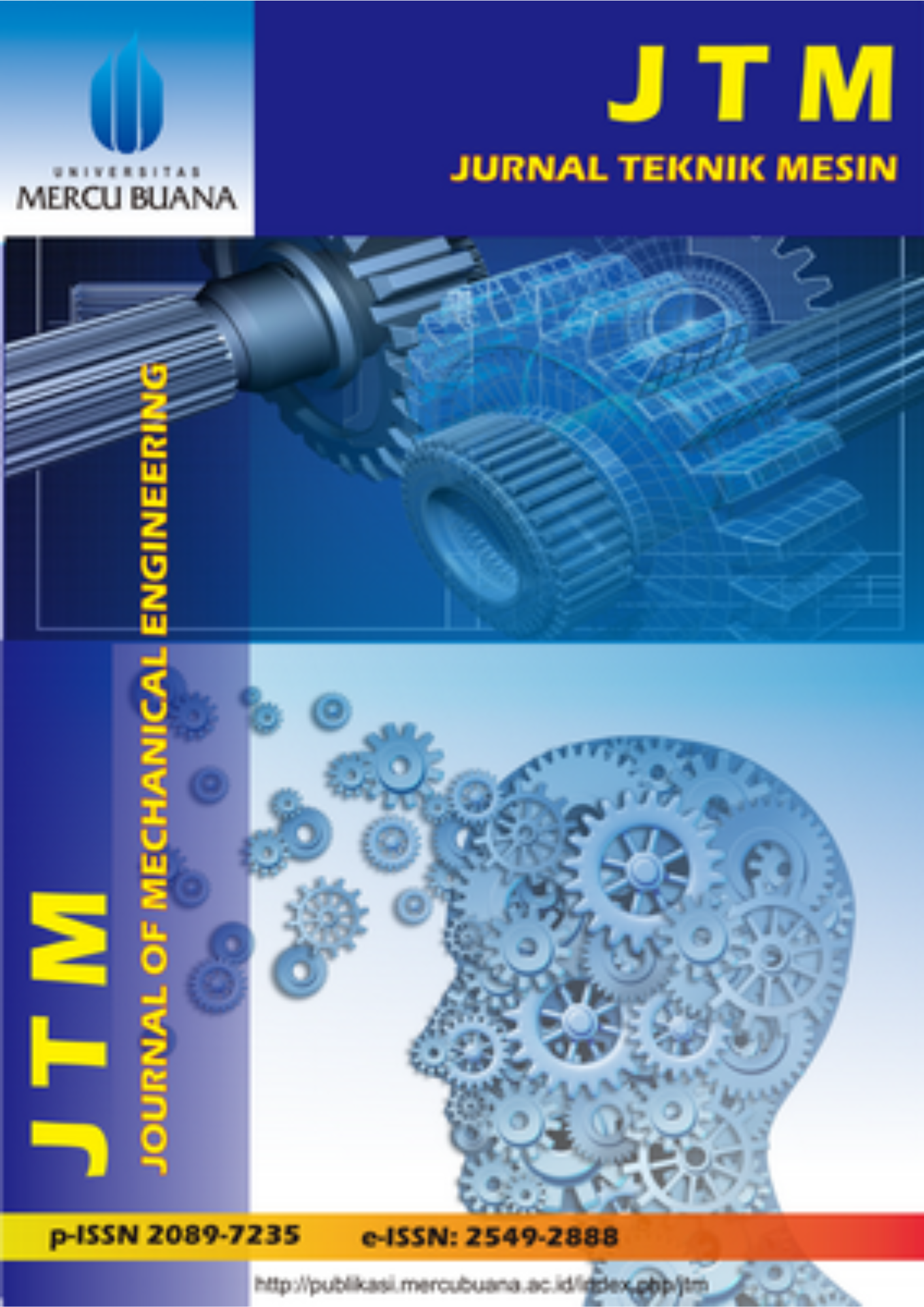Analysis Effect of Increasing Entering Condenser Water Temperature into the Chiller Performance by Using Energy Audit Tools and York Work Software at Mal Ambassador Jakarta
Abstract
The use of electrical energy for the cooling system reaches 47% - 65% of the total electrical energy used in buildings. Therefore, in order to reduce energy use, it is necessary to evaluate, evaluate and recommend in the process of increasing the energy efficiency used, one way is to replace the engine units that are already active and inefficient. considering the building must remain operational during the engine replacement process, most of the engineering department only decided to replace the unit chiller only without the supporting components (pumps, cooling tower, AHU, FCU and piping installations). Thus, with the supporting components are in not perform condition; influencing to the chiller parameters deviate from the standard design parameters. The analysis aims to determine the impact caused by the entering condenser water temperature exceeding (ECWT) the standard chiller unit design by using energy audit equipment and Yorkwork’s software. The results of the evaluation and optimization with the increasing ECWT by 3 °C or 10% of the unit chiller design; resulting in the decreasing of cooling capacity in the evaporator by 11-17% compared with the ECWT design 30 °C. Actual measurement capacity produced by the chiller is 1531 kWcooling; as Yorkwork’s software chiller capacity should be 1764 kWcooling. Chiller COP decreased by 16-19%, with an average actual COP value 5.34 with an average COP as per chiller design is 6.49. Increasing of ECWT forces the compressor to work harder to produce the pressure and refrigerant saturation temperature exceeding ECWT temperature in order to rejected heat from the refrigerant to the condenser to change the refrigerant phase and influence to the subcooling temperature produced.
Full Text:
PDFDOI: http://dx.doi.org/10.22441/jtm.v10i3.12297
Refbacks
- There are currently no refbacks.
Copyright (c) 2021 Jurnal Teknik Mesin
Jurnal Teknik Mesin (JTM)
Program Studi Teknik Mesin, Fakultas Teknik, Universitas Mercu Buana
Jl. Meruya Selatan No. 01, Kembangan, Jakarta Barat 11650, Indonesia
Email: [email protected]
Telp.: 021-5840815/ 021-5840816 (Hunting)
Fax.: 021-5871335
JTM is indexed by the following abstracting and indexing services:

This work is licensed under a Creative Commons Attribution-NonCommercial 4.0 International License.






.png)







_(486_x_90_px)_(486_x_190_px)_(486_x_190_px)_(4).png)
_(486_x_90_px)_(486_x_190_px)_(486_x_190_px)_(5).png)
2.png)
.png)